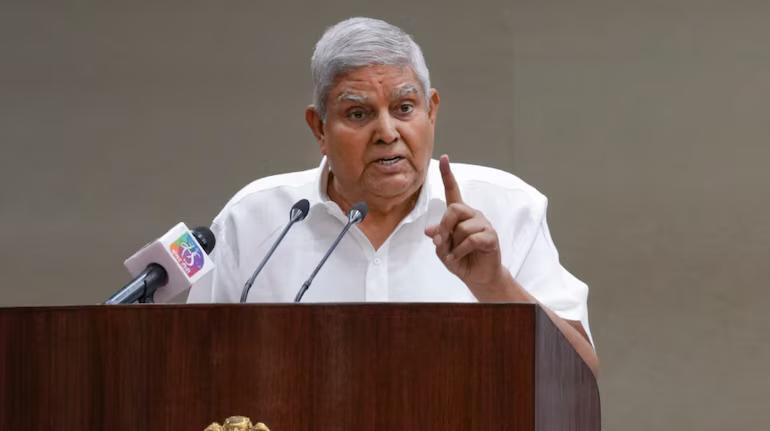
Terrorism is Global Menace: Vice President Dhankhar on J&K Attack
Terrorism has been a persistent threat to global peace and security for decades, causing untold suffering and devastation to innocent civilians. The recent terror attack in Pahalgam, Jammu and Kashmir, is a stark reminder of the menace that terrorism poses to humanity. In the aftermath of the attack, which claimed the lives of at least 26 people, Vice President Jagdeep Dhankhar has condemned the incident and reiterated that terrorism is a global issue that requires a collective effort to combat.
The attack in Pahalgam, which occurred on Friday, was a brutal reminder of the ruthless nature of terrorism. The incident has left the nation in shock, with people from all walks of life expressing their outrage and grief. The Vice President’s condemnation of the attack is a testament to the nation’s solidarity in the face of such heinous acts.
In a statement, Vice President Dhankhar said, “I join the nation in expressing profound grief and outrage at the heinous attack in Pahalgam that claimed innocent lives. It is a reminder that terrorism is a global menace.” His words are a poignant reminder of the fact that terrorism is a problem that transcends borders and affects people from all over the world.
The attack in Pahalgam is not an isolated incident, but part of a larger trend of terrorism that has been plaguing the region for years. Jammu and Kashmir has been a hotbed of terrorist activity, with various groups vying for power and attention. The state has witnessed numerous attacks in the past, including the 2019 Pulwama attack that killed over 40 CRPF personnel.
The recent attack in Pahalgam is a stark reminder of the need for a robust and coordinated response to terrorism. It is essential for governments and international organizations to work together to share intelligence, coordinate strategies, and provide support to affected countries. The attack is also a reminder of the need for greater international cooperation to combat the root causes of terrorism, including poverty, political instability, and social inequality.
Terrorism is a complex issue that requires a multifaceted approach to combat. It is not just a law and order issue, but also a political, economic, and social one. To effectively combat terrorism, governments must address the underlying causes of radicalization, provide economic opportunities to marginalized communities, and promote social cohesion and inclusivity.
In addition to a robust security response, it is essential to address the psychological and emotional trauma caused by terrorist attacks. The victims of terrorism and their families require support and counseling to cope with the trauma and loss caused by such attacks. Governments and civil society organizations must work together to provide this support and ensure that those affected by terrorism receive the help they need.
The attack in Pahalgam is also a reminder of the importance of media responsibility in reporting on terrorism. The media has a crucial role to play in shaping public opinion and influencing the narrative around terrorism. It is essential for the media to report responsibly and avoid sensationalism, which can exacerbate the situation and promote further radicalization.
In conclusion, the attack in Pahalgam is a stark reminder of the global menace of terrorism. It is essential for governments and international organizations to work together to combat this threat, address its root causes, and provide support to affected countries and communities. As Vice President Dhankhar has said, “Terrorism is a global menace” that requires a collective effort to combat. We must come together to fight this scourge and ensure that those responsible for such heinous acts are held accountable.






